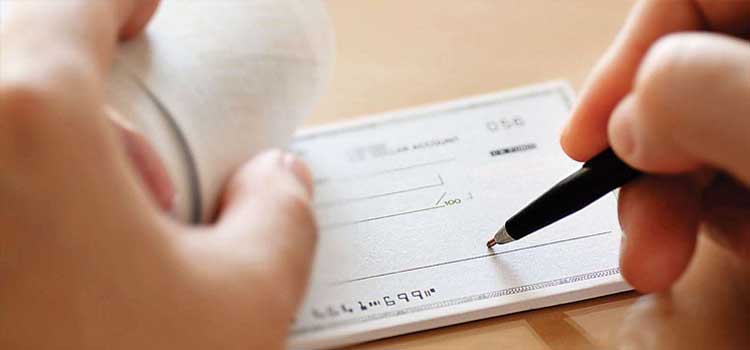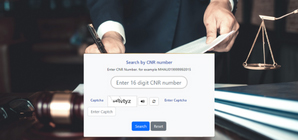What Happens If Cheque Bounces In India?
Posted On : May 30, 2022

Table of Contents
Suppose you have been in business for years…finances are sometimes entered in cash, sometimes through banks and the other times through cheques. Everything is going smoothly!!.....Until one day you find out that the cheque received from the client has been bounced. But what happens if cheque bounces in India?
There can be several reasons for cheque bounce in India…..and it is not at all necessary to everytime be followed by legal consequences. Also, penal process can be followed only if cheque bounce due to insufficient balance as per Section 138 of the Negotiable Instruments Act, 1881. Instances of false cheque bounce case have also gained popularity these days. Thus, for cheque users, it is crucial to know what happens if cheque bounces in India.
Reasons for Cheque Bounce in India
What Happens if Cheque Bounces in India?
Dishonour of cheque in legal terms is generally called as cheque bounce in India. Due to complexity in applicable laws and ignorance, people often get confused regarding the cheque bounce law in India. In case of dishonour of cheque, the following may happen:
What Will Happen if the Cheque Bounces?
If you are someone who received a cheque, submitted the same to drawee bank and got the notification of cheque bounce, the following has to be followed:
Collect the memo from drawee bank which contains reason of cheque bounce in India;
Confirm if cheque bounce due to insufficient balance is the reason or some other technical fault;
If it is for some other reason, contact and communicate the same to drawer of cheque;
If cheque bounces due to insufficient balance in drawer’s account, contact cheque bounce lawyers;
Serve a legal notice within 30 days of cheque bounce communicating the dishonour of cheque;
Clearly specify the deadline of 15 days for payment of debt amount;
If there is no payment within the said 15 days, cause of action starts on part of payee from 16th day;
Start with a criminal complaint under Section 138 of NI Act against the drawer with the help of a lawyer;
During the cheque bounce case process, prove the transactional debt of drawer through relative evidence (Make sure it is not a liability of a promised gift or donation);
Documents like dishonoured cheque, memo of dishonour, cheque bounce notice and notice receipt have to be attached with the petition;
If the cheque bounce case of prosecution is proved, cheque bounce punishment in India may result in imprisonment of upto 2 years or fine equivalent to twice the amount in said cheque.
Cheque Bounce Notice
Within 30 days of receiving a cheque bounce memo from the drawee bank, the payee has to serve the drawer with a legal notice. The said legal notice should clearly explain the amount involved in cheque bounce case in India along with the history of debt in this regard. The drawer should expressly be given a period of 15 days to mend the mistake, if any. Once the said period of 15 days expires, cause of action begins on Day 16.
Can Bounced Cheque be Deposited Again in India?
Yes, in case of some technical error like excess of payment limit set by drawer, or signature error, the drawer may request payment through another cheque. Also, the same cheque may be used if the drawer promises to add sufficient funds in the account the next time.
Loopholes in Cheque Bounce Case
If it is about finding loopholes or counter points in a cheque bounce case, the banking lawyers are professionals who can suggest case specific tricks. The main trick is comparing facts of the case with the cheque bounce laws in India, specifically the Section 138 to 142 of the said Negotiable Instruments Act, 1881. It can be the absence of legal obligation of debt, it can be delay in serving a legal notice, or some other lacuna.
Cheque Bounce Penalty Charges
Cheque bounce case in India is a criminal law provision and thus, punishment also follows. The answer to how to escape from cheque bounce case is payment of debt to the concerned person. Otherwise, if the case of cheque bounce in India is proved against the drawer, he may be compelled to pay a fine equivalent to two times the amount involved in transaction through cheque. Otherwise, Section 138 mentions imprisonment of upto 2 years or with fine. However, the amount may not be limited to this but also include the litigation expenses of the payee.
Aim Behind Cheque Bounce Laws in India
Every legal provision is enforced with some object, some purpose. It may be to put an end to downgrading customs like dowry, or to curb misuse of loopholes in banking laws. In this case, the aim was promoting use of cheques in transactions and saving the pecuniary interests of persons against whom payment is due.
In case of Vinay Devanna[1], the Supreme Court has clarified that the criminal proceedings of cheque bounce case in India do not prioritise punishing the drawer of cheque. The main motive of cheque bounce penalty charges is to force the liable person to discharge his/ her financial obligations and relieve the payee. Thus, the cheque bounce cases are compoundable in nature, i.e. can be compromised through payment of debt so incurred.
Conclusion
Through all the aspects addressed above in consequence of cheque bounce in India, the legal provisions involve penalty to promote due obligation of debt payments. If it is a technical error, things may not be much serious. But if cheque bounce due to insufficient balance, one should know the law. An accurate answer to ‘how to escape from cheque bounce case?’ can be sought from legal professionals by explaining facts of the case.
[1] Vinay Devanna Nayak vs. Ryot Seva Sahakari Bank Ltd. (Criminal Appeal No.1679 of 2007).
























